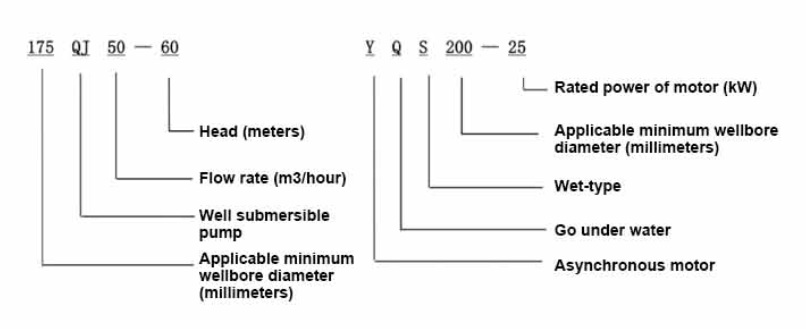Nov . 29, 2024 12:37 Back to list
Optimal Performance of Submersible Pumps for Efficient Water Well Systems
Understanding Well Submersible Pumps Functionality and Benefits
Well submersible pumps are indispensable devices used primarily for extracting water from deep wells, making them essential for various applications, from agricultural irrigation to municipal water supply systems. These pumps operate underwater, which distinguishes them from traditional surface pumps that need to be positioned above the water level. The design and functionality of submersible pumps contribute significantly to their efficiency and reliability in moving water from depths often exceeding hundreds of feet.
How Do Well Submersible Pumps Work?
A submersible pump consists of a motor and a pump unit, both of which are hermetically sealed to prevent water intrusion. The motor functions by converting electrical energy into mechanical energy, which then powers the impeller of the pump. As the impeller spins, it creates a centrifugal force that pushes water upwards through the pump casing and ultimately to the surface via a discharge pipe.
The entire assembly is submerged in the water, which not only keeps the pump cool but also helps to eliminate issues related to cavitation that can occur in surface pumps. Cavitation happens when there’s a drop in pressure that causes the liquid to vaporize, leading to vapor bubbles that can damage the impeller and other components. By operating underwater, submersible pumps effectively mitigate this risk.
Advantages of Using Submersible Pumps
1. Efficiency Since submersible pumps work underwater, they are generally more energy-efficient than their surface counterparts. They require less energy to push water through a vertical column, making them ideal for deep well applications.
2. Space-Saving Design Submersible pumps are compact and can fit into narrow wells, thus requiring less surface space. This benefit is particularly significant in urban areas where space is limited.
3. Low Noise Levels Because submersible pumps are located underwater, they operate more quietly than surface pumps. This characteristic is beneficial in residential areas, where noise pollution may be a concern.
well submersible pumps

4. Reduced Risk of Contamination Since they are installed below the water surface, submersible pumps provide an additional layer of protection against contamination from surface pollutants. This feature is crucial for maintaining the quality of drinking water and irrigation systems.
5. Versatility Submersible pumps are versatile and can handle various fluid types, including clean, dirty, and even corrosive liquids. This versatility makes them suitable for diverse applications, from industrial uses to residential water systems.
Maintenance and Considerations
While submersible pumps are robust and designed for longevity, regular maintenance is essential to ensure optimal performance. Key considerations for maintaining a submersible pump include
- Routine Inspection Regularly checking the pump for signs of wear or damage can prolong its lifespan. This includes inspecting cables, seals, and the impeller. - Removing Debris Ensuring that the well is clear of debris and sediment can prevent damage to the pump and maintain efficiency.
- Electrical Checks Since submersible pumps rely on electrical power, it’s important to routinely check electrical connections and the integrity of the motor.
Conclusion
Well submersible pumps are a critical component of modern water management systems. Their efficiency, space-saving design, and ability to operate quietly while delivering water from substantial depths make them an attractive option for many users. Whether in agriculture, residential settings, or industrial applications, understanding the functionality and benefits of submersible pumps can help stakeholders make informed decisions about their water extraction needs. With proper maintenance and care, these pumps can provide reliable service for many years, ensuring that water resources are efficiently managed.
-
Submersible Water Pump: The Efficient 'Power Pioneer' of the Underwater World
NewsJul.01,2025
-
Submersible Pond Pump: The Hidden Guardian of Water Landscape Ecology
NewsJul.01,2025
-
Stainless Well Pump: A Reliable and Durable Pumping Main Force
NewsJul.01,2025
-
Stainless Steel Submersible Pump: An Efficient and Versatile Tool for Underwater Operations
NewsJul.01,2025
-
Deep Well Submersible Pump: An Efficient 'Sucker' of Groundwater Sources
NewsJul.01,2025
-
Deep Water Well Pump: An Efficient 'Sucker' of Groundwater Sources
NewsJul.01,2025
-
 Submersible Water Pump: The Efficient 'Power Pioneer' of the Underwater WorldIn the field of hydraulic equipment, the Submersible Water Pump has become the core equipment for underwater operations and water resource transportation due to its unique design and excellent performance.Detail
Submersible Water Pump: The Efficient 'Power Pioneer' of the Underwater WorldIn the field of hydraulic equipment, the Submersible Water Pump has become the core equipment for underwater operations and water resource transportation due to its unique design and excellent performance.Detail -
 Submersible Pond Pump: The Hidden Guardian of Water Landscape EcologyIn courtyard landscapes, ecological ponds, and even small-scale water conservancy projects, there is a silent yet indispensable equipment - the Submersible Pond Pump.Detail
Submersible Pond Pump: The Hidden Guardian of Water Landscape EcologyIn courtyard landscapes, ecological ponds, and even small-scale water conservancy projects, there is a silent yet indispensable equipment - the Submersible Pond Pump.Detail -
 Stainless Well Pump: A Reliable and Durable Pumping Main ForceIn the field of water resource transportation, Stainless Well Pump has become the core equipment for various pumping scenarios with its excellent performance and reliable quality.Detail
Stainless Well Pump: A Reliable and Durable Pumping Main ForceIn the field of water resource transportation, Stainless Well Pump has become the core equipment for various pumping scenarios with its excellent performance and reliable quality.Detail
